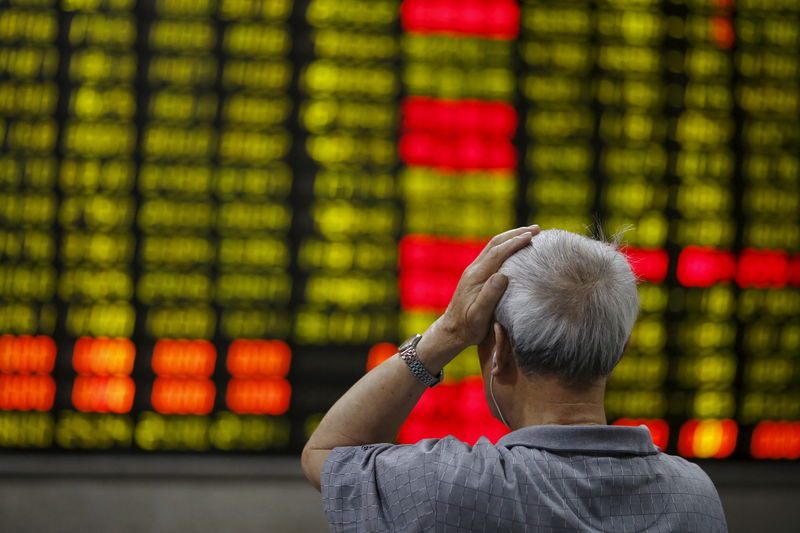Investing.com - Asian stocks reversed early gains and turned negative in afternoon trade on Thursday.
China’s Shanghai Composite and the Shenzhen Component both traded 0.1% lower by 1:30AM ET (05:30 GMT), while Hong Kong’s Hang Seng Index also edged down 0.2.
Rob Carnell, chief economist and head of research, Asia-Pacific at ING, said he saw more reasons to take a “glass-is-half-full” approach given the recent emerging market selloff.
“It’s not my natural state of being at all, but I’m always looking for the bad in things, and there’s plenty out there, and the markets don’t really seem to be responding all that much,” Carnell said.
Chinese news agency Xinhua reported on Wednesday that Alibaba (NYSE:BABA) chairman Jack Ma no longer promises to create 1 million jobs in the U.S. following recent trade development.
"This commitment is based on friendly China-U.S. cooperation and the rational and objective premise of bilateral trade," Ma told Xinhua on Wednesday.
"The current situation has already destroyed the original premise. There is no way to deliver the promise," he added.
Tencent Music, the subsidiary of tech giant Tencent Holdings Ltd (HK:0700), is looking to raise around $2 billion in a U.S. listing, down from the $4 billion touted before, according to sources from Reuters.
The company is said to have filed for the IPO on Sept. 7 with the U.S. Securities and Exchange Commission in what might be one of the biggest listings in New York by a Chinese firm in 2018.
Meanwhile, New Zealand’s Q2 GDP report was in focus as data from the Stats NZ showed the country’s economic growth topped estimates. GDP rose 1% quarter-on-quarter in the three months through June and outperformed the general consensus of a 0.7% increase.
“The solid rise in GDP in the second quarter will give the RBNZ more confidence in its view that GDP growth will rise back above 3% next year. In contrast, we believe that low confidence, a soft housing market and easing net migration will result in growth slowing further next year, perhaps to around 2%,” said Capital Economics economist Paul Dales.
The kiwi rose following the data release, while Australia’s S&P/ASX 200 slipped 0.4%.
South Korea’s KOSPI outperformed its regional peers and gained 0.8% as North Korean leader Kim Jong-un and his South Korean counterpart Moon Jae-in held two days of talks in Pyongyang, the first visit by a South Korean leader to the North Korean capital in 11 years.
Elsewhere, Japan’s Nikkei 225 slipped 0.01%. Japan’s Prime Minister Shinzo Abe is expected to win a ruling party leadership vote this week, CNBC reported.
Looking ahead, markets would be paying close attention to next week’s Federal Reserve meeting. The U.S. central bank is widely expected to hike rates and discuss paths for future rate hikes.
